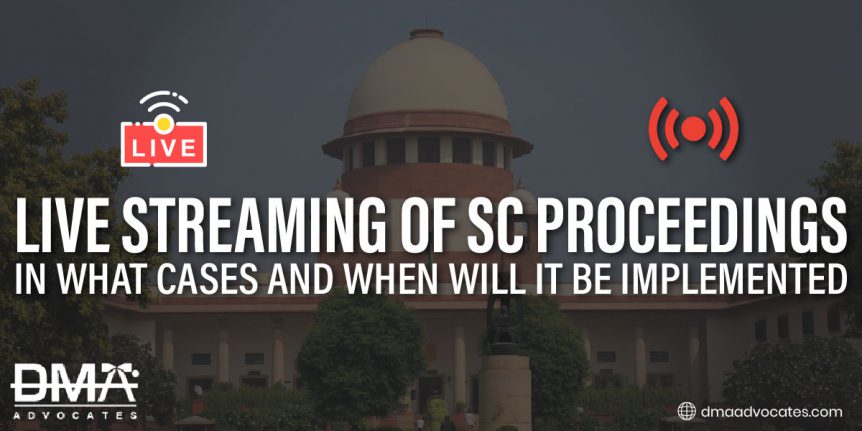The Supreme Court of India on September 26, 2018 allowed live streaming and video recording of court proceedings across the country. The bench comprising Chief Justice Dipak Misra and Justices AM Khanwilkar and DY Chandrachud asked the government to frame rules in this regard under Article 145 of the Constitution.
The top court stated that live streaming of court proceedings will bring accountability and transparency into the judicial system and serve the public interest. The bench said, “Sunlight is the best disinfectant, let people get first-hand information about what is going on in courtroom proceedings.”
The order came on a Public Interest Litigation (PIL) filed by senior advocate (NCLT) Indira Jaising in her personal capacity in January this year.
Seeking live streaming and webcast, Jaising, in her petition, had urged the apex court to allow “live streaming of proceedings in cases that are of constitutional and national importance having an impact on the public at large or a large number of people.” Justice D Y Chandrachud observed that it will give more clarity to the court proceedings, and at the same time the cases would be more transparent.
In her petition, Jaising had argued that, live telecasting of Supreme Court proceedings will increase access to courts and “negate the chances of any misreporting, errors or second-hand information.”
She also stated that the “right to seek, receive information including live streaming of Supreme Court proceedings” is a Fundamental Right guaranteed under Article 19(1)(a) of the Constitution.
The court also laid down several conditions, mostly in consonance with those handed over by Attorney-General K.K. Venugopal.
It pointed out that in some cases the parties may have genuine reservations and may claim right of privacy and dignity. “Such a claim will have to be examined by the court and for which reason, a just regulatory framework must be provided for, including obtaining prior consent of the parties to the proceedings to be live-streamed,” Justice Khanwilkar observed.
The final decision whether to live-stream a case or not lies with the court, especially in sensitive ones. The decision cannot be appealed, the court said.
The judgement also contained a set of model guidelines, suggested to steer the implementation of the pilot project. Regarding the types of matters to be live-streamed, the guidelines excluded cases falling under the following categories:
1. Matrimonial matters, including transfer petitions
2. Cases involving sensitive issues as in the nature of sexual assault
3. Matters where children and juveniles are involved, like POSCO cases
4. Where objections are filed by a litigant against live-streaming of a case on any grounds, the final authority on live-streaming the case shall lie with the presiding judge.
Currently, countries and jurisdictions such as Canada, Australia, the UK, New Zealand, South Africa, the European Court of Human Rights and the International Criminal Court, permit varying degrees of recordings of court proceedings. Hope India too joins this bandwagon and this will increase the trust of the public in our judiciary.


